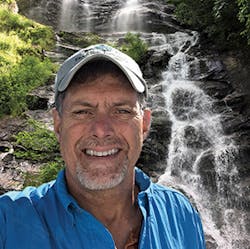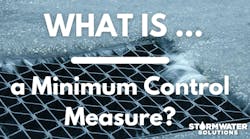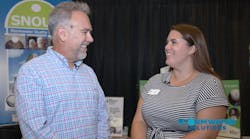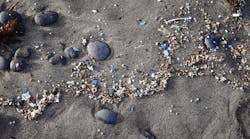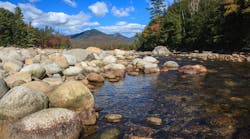T. Luke Owen enjoys that “Aha!” moment when a contractor understands not only the “what” but also the “why” of an NPDES permit requirement. “I’ve heard it said that the Clean Water Act and the NPDES program has been more successful in improving our environment than any other program,” he says. “I want to help people understand that.”
Owen is president, principal trainer, keynote speaker, and stormwater consultant for the NPDES Stormwater Training Institute in Atlanta, GA. His company provides services in National Pollutant Discharge Elimination System (NPDES) construction compliance, erosion prevention, sediment control training and consulting, NPDES municipal separate storm sewer system (MS4) compliance and enforcement, certified inspector training and consulting, and NPDES industrial permit training and consulting. In 14 years, he’s trained more than 12,000 industry professionals. “Creating balance between economic development and water-quality protection is the key to America’s enjoyable future,” he says. In his travels, Owen says, his goal is to make NPDES a “household term.” He notes that 85% of Americans live and work within MS4s, “and they don’t even know about this critical program.” Training is critical to the success of NPDES, says Owen. In speaking with state and federal regulators about the difference before there were NPDES training programs and now, he sees their impact. “Good training can really make a difference,” he adds. “I believe in bringing awareness and understanding not just of the importance of watersheds but also how these regulations work, such as the importance of properly installing a BMP for permit compliance during daily rainfall.” Owen has served on Georgia’s governor-appointed stakeholders board for the reissuance of the NPDES Construction General Permit and on the National Environmental Steering Committee for the Associated General Contractors of America. He holds membership in the International Erosion Control Association, the Southeast Stormwater Association, and the Georgia Association of Water Professionals. He is an MS4 Compliance and Enforcement Certified Inspector (MS4CECI).
What He Does Day to Day
Owen days are filled with classroom training and with responding to numerous daily requests to clarify regulations, address stormwater pollution prevention plan (SWPPP) issues, or help regulators deal with issues involving developers and contractors. He also scripts new courses and does speaking engagements.
What Led Him to This Line of Work
Owen served in the US Marine Corps. He earned a B.S. in geology from Colorado Mesa University, which launched a career in environmental and water quality consulting. “I’m a geologist,” notes Own. “I had no idea I was going to end up in water.” But after working in water and wastewater treatment and then doing industrial site inspections, Owen says he found he was good at his consulting job helping clients understand why rules exist and how apply them so they “could not feel like the government was against them but that there were reasons for these things that made sense.” He adds he also “fell in love” with the water part of his consulting work. Owen says his military travels overseas “woke me up to how critical and sensitive water is after coming back to this country, seeing how rich we were in cities that had clean water in the rivers and lakes, while overseas they were severely polluted. I got passionate about trying to help people understand why it’s so important to do what we do in environmental protection.”
What He Likes Best About His Work
Training others, says Owen, “motivates me and drives me to where I feel I’m making a difference.” Owen says he enjoys his success in getting people to care about NPDES. He’s met general contractors worried about spending money on SWPPP designs and BMPs as well as getting fines. “When they leave class, they’re equipped with the ‘why’ they’re doing what they’re doing. They’re not working from a position of fear of getting fined, but knowing what the creek does, and they thank me. I remove the confusion that is so rampant out there about what NPDES is and its intent.”
